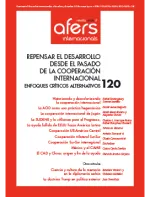Agreements and disagreements in the EU’s cooperation policy with Central America

Antonio Sianes, profesor contratado doctor, Departamento de Estudios Internacionales, Universidad Loyola Andalucía; Francisco Santos Carrillo, profesor contratado doctor, Departamento de Estudios Internacionales, Universidad Loyola Andalucía; Luis Antonio Fernández Portillo, profesor titular, Departamento de Gestión Empresarial, Universidad Loyola Andalucía
This paper provides a methodological framework for a critical analysis of EU-funded development cooperation policies towards the Central American region between 2007 and 2013. The aim is to identify certain recurring elements that allow the systematisation of the main imbalances of these transnational public policies to be advanced. It also seeks to contribute to understanding the complexity of implementing policies, such as those on international cooperation, in a diffuse global governance scenario in which legal and institutional frameworks are still weak – not to say non-existent – and collective action is complex and multilevel. It can help us understand why these policies have been ineffective in their attempt to compensate the losers of globalisation.
Key words: global governance, transnational public policies, international cooperation, European Union, Central America
DOI: doi.org/10.24241/rcai.2018.120.3.119
>> The full text articles of this issue are available only in Spanish language